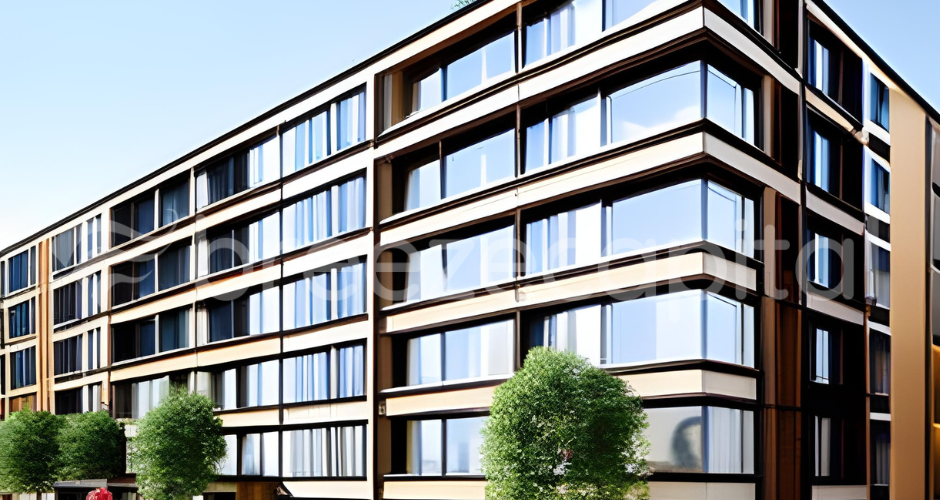How to Make Money by Converting Commercial Office Buildings into Residential Apartments

Introduction
In recent years, the demand for residential apartments has increased, creating a lucrative opportunity for property developers to convert commercial office buildings into modern living spaces. Breeze Capital, a leading development finance provider, offers a comprehensive guide on how to take advantage of this trend and make money from transforming commercial spaces into residential apartments. We will discuss key topics such as permitted development, bridging loans, and commercial mortgages to help you get started.
Do I Need Planning Permission to Convert Offices to Residential?
The first step in converting office buildings to residential apartments is obtaining the necessary planning permissions. In the UK, the “permitted development” scheme allows certain types of conversions without the need for full planning permission. Commercial office buildings can be converted to residential apartments under the permitted development rights (PDR), provided specific criteria are met. It is essential to consult with your local planning authority to ensure your project complies with the rules and regulations.
Can You Change a Building from Commercial to Residential?
Yes, you can change a building from commercial to residential use, as long as you follow the appropriate planning procedures and obtain the necessary permissions. The permitted development scheme is designed to streamline the conversion process, but it’s crucial to be aware of any restrictions or additional requirements. It is always advisable to seek professional advice from a property development consultant to ensure a smooth and successful transition.
How Much Does It Cost to Convert a Building into Apartments?
The cost of converting a building into apartments can vary depending on the size, location, and condition of the property. Typical expenses include:
-
Acquisition costs: The purchase price of the commercial building and any associated legal fees.
-
Planning and design costs: Engaging architects, surveyors, and other professionals to create a suitable design for the residential conversion.
-
Construction and renovation costs: The expenses incurred during the conversion process, including demolition, structural alterations, and the installation of new fixtures and fittings.
-
Financing costs: The cost of obtaining development finance or a bridging loan to fund the project.
-
Marketing and sales costs: The expenses associated with advertising and selling the completed apartments.
To determine the potential profitability of a conversion project, it is essential to conduct a thorough financial analysis, considering all of the costs and potential revenue streams.
How Do I Change My Business Property to Residential?
If you’re a property developer looking to convert a commercial building into residential apartments, follow these steps:
-
Research: Investigate the local property market and identify suitable buildings for conversion. Consider factors such as location, size, and condition.
-
Feasibility study: Conduct a feasibility study to assess the potential profitability of the project, taking into account acquisition costs, conversion costs, and potential rental or sale income.
-
Planning permission: Consult with your local planning authority to determine whether your project falls under permitted development rights or if full planning permission is required.
-
Obtain financing: Secure development finance or a bridging loan to fund the acquisition and conversion costs. Breeze Capital can assist you with tailored financing solutions to meet your specific needs.
-
Assemble a professional team:
A successful conversion of a commercial office building into residential apartments requires the expertise of various professionals. Assembling a skilled team is crucial to ensure the project runs smoothly and efficiently, from planning to completion. Here are some of the key professionals you should engage:
-
Architect: An architect is responsible for designing the layout and appearance of the residential apartments, taking into account structural requirements, building regulations, and aesthetic appeal. They will work closely with you to create a functional and visually appealing living space that meets the needs of potential residents.
-
Structural Engineer: Structural engineers ensure the building’s integrity and stability during and after the conversion process. They assess the building’s current structural condition, identify any necessary reinforcements or modifications, and provide guidance on how to safely implement the conversion plans.
-
Quantity Surveyor: A quantity surveyor manages the financial aspects of the project, including budgeting, cost estimation, and cost control. They help you stay on budget by monitoring expenses, negotiating with contractors, and ensuring that you receive value for money throughout the project.
-
Project Manager: A project manager oversees the entire conversion process, coordinating the efforts of the entire professional team, managing timelines, and ensuring that the project is delivered on time and within budget. They act as a single point of contact for all project-related matters, making communication more efficient and reducing the risk of delays.
-
Building Contractor: The building contractor is responsible for the physical conversion of the commercial office building into residential apartments. They oversee the construction, renovation, and installation of fixtures and fittings, working closely with the architect, structural engineer, and other professionals to ensure the project is completed to a high standard.
-
Planning Consultant: A planning consultant can provide invaluable advice on navigating the planning process, ensuring that you obtain the necessary planning permissions and comply with all relevant regulations. They can also help you identify any potential issues or obstacles and advise on how to overcome them.
-
Environmental Consultant: An environmental consultant assesses the environmental impact of the project, addressing issues such as energy efficiency, waste management, and the use of sustainable materials. They help you create a more eco-friendly and energy-efficient residential development, which can be an attractive selling point for potential residents.
By assembling a professional team with the right expertise and experience, you can ensure that your commercial office building conversion project runs smoothly, stays on budget, and results in high-quality residential apartments that meet the needs and expectations of modern residents. Investing in the right professionals is essential for maximising the profitability of your property development project.
-
-
Manage the project: Oversee the construction and renovation process, ensuring the work is carried out to a high standard and within budget.
-
Market and sell or rent: Once the conversion is complete, advertise the apartments for sale or rent, and manage the ongoing property maintenance and management.
Conclusion
Converting commercial office buildings into residential apartments can be a profitable venture for property developers, provided they follow the correct planning and development procedures. By leveraging permitted development rights and securing the appropriate development finance or bridging loan, developers can capitalize on the growing

